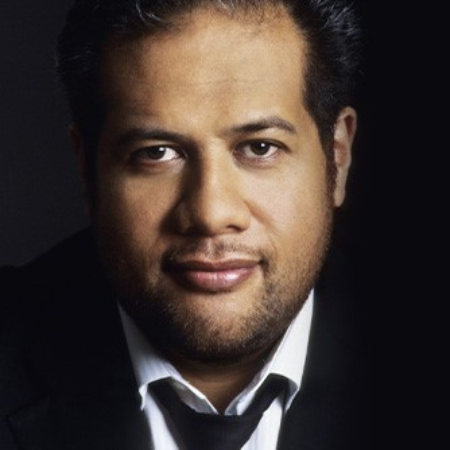
An Audience with Jonathan Lemalu
7 Apr 2021

7 April 2021
Grammy award-winning bass Jonathan Lemalu is back in New Zealand to give a series of recitals and masterclasses in Auckland, Wellington, Christchurch and his hometown of Dunedin. Jonathan won the Mobil Song Quest (now the Lexus Song Quest) in 1998 and followed that up with a string of prestigious international awards. His career has seen him perform at the Metropolitan Opera in New York, The Royal Opera House, Glyndebourne Festival, Salzburg Festival, English National Opera, BBC Proms and many more of the world’s leading stages.
Jonathan’s tour runs from 24 April until 6 June and features both operatic and art song recitals. Click here to book An Audience with Jonathan Lemalu. In addition, Jonathan will be giving masterclasses in Wellington (23 April), Auckland (28 April), Dunedin (3 May) and Christchurch (3 June). Click here for details of Jonathan’s masterclasses.
We sought an audience of our own with Jonathan, and took the opportunity to quiz him about his choral background…
What was your choral background prior to embarking on a solo career?
I began as a treble at St Paul’s Cathedral choir with Dr Raymond White in Dunedin in 1986, aged 10, singing 4-5 services a week for 13 years, so choral singing was a huge part of my growing up. I got my first singing lesson via a St Paul’s scholarship with Honor McKellar, who was my teacher until I left for London in 1999. I sang with the New Zealand Secondary Students Choir and the New Zealand Youth Choir, which were also formative experiences. Being a member of the (in)famous Otago University Capping Sextet was less formative, but no less musically nourishing.
What’s your favourite memory as a choral singer?
I really enjoyed the camaraderie and the friendships – from Southern Cathedral Choirs festivals with Christchurch Cathedral, to numerous tours to Europe, and experiencing high quality choral music in Aotearoa. Going to London and realising we could more than hold our own chorally, with our choirs being such regular prize winners internationally, gave me great pride that I had been a part of such a rich legacy of choral music. I even dabbled as conductor of the Southern Youth Choir, and I don’t think I broke anything, so I’m pretty proud. The spine of our freelance classical opera singers comes from our choirs. It is an integral part of the education and performance practice skills of working classical singers.
How does your choral training benefit your work as an opera singer?
The ability to listen. To absorb and decipher information quickly and calmly and focus under pressure. My choral skills give me a resolve and swagger that I can learn anything. Reading music, aural skills, interpretation, understanding style, ensemble, harmonies, dissonance and resolution, phrasing, word painting, psalm chants. So many choral greats such as Bach, Mozart, Handel, Purcell, Byrd were all on the menu as a chorister. The ability to accompany and be a soloist in ensembles. All these skills translate organically from choral to solo work.
Does your choral background influence or inform aspects of your teaching at the Royal College of Music?
Again the ability to listen. To analyse and imagine. Chorally, as a treble and a bass, I heard music from different physical levels. I think to know your role within a piece/opera is vital to supporting and serving the piece. I think I was exposed to a lot of different styles, genres and languages – and they were all to serve a story. Story-telling through sound and words is what both disciplines share.
If you could choose one choral work to take to a desert island, what would it be?
I think for me it would be something like Bach’s St Matthew and St John passions. Drama, intimacy and public declamation, tension, release… contemplative, combative – pure drama. Where the chorus is just as, if not more, important than the soloists. A true ensemble piece.
